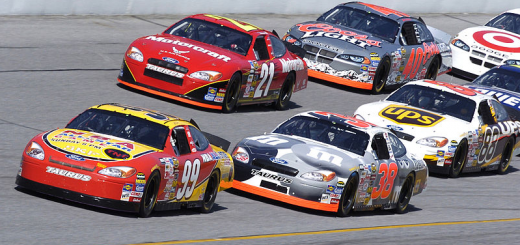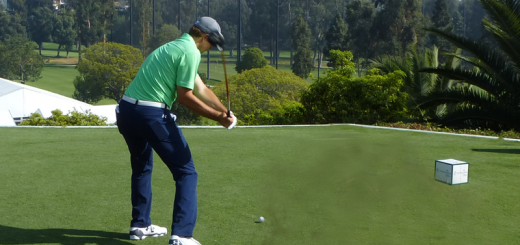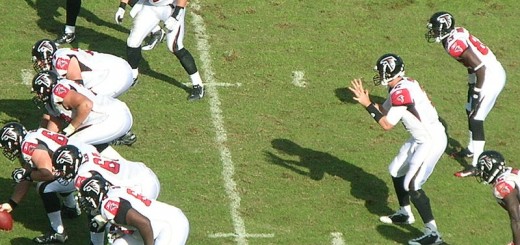Out of Bounds
There is a play that occurs during football games, that, because of the way referees call it, often can determine the outcome of a game, and, in most cases, I don’t think they are getting it right.
The way referees call a game should not determine outcomes of games. The only calls that should determine games are the ones where the referees detect one team cheating or trying to gain an advantage illegally. You know those calls, like the ones where a defensive player commits obvious pass interference to prevent an obvious long pass reception or touchdown.
Or an obvious holding call where that exact hold was the reason the person was sprung for the long touchdown run. For those types of plays, the referee’s calls are a fair reflection of the game and are NOT being the determining factor.
The play I am talking about can best be described as “the late hit out of bounds.” There are far too many times when that situation occurs and the defensive player is automatically penalized fifteen yards for an infraction that is often not worthy of that serious, flagrant foul amount of yards, and often should not even be a penalty at all.
On the type of play in question, the offensive player (a quarterback scrambling, a running back heading up the sideline, the wide receiver doing likewise) is trying to gain as many yards as possible, before going out of bounds. There are many variations of that play for the defensive player trying to stop the ball carrier. In other words, not all late hits out of bounds are the same. But, the problem is, they are penalized the same.
Of course, there is the late hit out of bounds that is more along the lines of “unnecessary roughness.” You’ve seen the play. The defensive player is smashing into the ball carrier well after he has stepped out of bounds, often helmet first and often with the intention of trying to hurt him, and this is the one that deserves to be a fifteen yard penalty for unnecessary roughness. The defensive player did not have to hit the guy this late. He did not have to try to hurt the guy. He DID know that the guy was already out of bounds. The ball carrier was obviously in the white “out of bounds area” and the defensive player had seen the guy’s feet stepping out. THIS play deserves the full penalty.
There is also the play where the offensive player with the ball is trying to max out his yards on the play, and is even going so far as to stretch the ball out at the sideline (near the first down marker) to get as much as he can get before
heading out of bounds. He is heading towards the out of bounds, but is not there yet, his feet have not even hit the white stripe that is the out of bounds area. The defensive player, in near desperation, crashes into him to try to stop the first down (just as he veers to the out of bounds line), and, with no malice or forethought, is deemed to have committed a fifteen yard penalty. Why should THAT be a penalty?
There are other grey areas of the late hit penalty. The offensive player can be nearing the out of bounds sideline just as the defensive player is arriving, and the defensive player can just give a mild shove (to make sure there is no further progress). The offensive player can “take a soccer player dive” and act like they were mortally wounded, and get the ref to hand them a free fifteen yard penalty bonus. Sometimes that fifteen yard penalty turns out to be one of the biggest plays of the game. It is not right that a ref can flag a defensive player for a “late hit,” that is considered to be “unnecessary roughness,” when it is neither.
The point of this all is to say that there are variations of the player getting hit right near the sidelines and there are degrees of culpability that should be addressed. It should not all just be one simple button a ref can push that
absolves them from the fact that their call just decided a ball game.
I have a suggestion. First, the main determining factor in the late hit out of bounds should be that the offensive player’s foot HAS to have hit the ground out of bounds for there to be ANY penalty. If he is still in the midst of
completing his stride and he still has not hit the ground out of bounds, it should NOT be a penalty (no matter how violent or dramatic the tackle might appear if no other rules have been broken), and it is the offensive player’s fault for not getting out of bounds sooner.
There HAS to be some accountability for the offensive player’s decision to be going out of bounds “late,” and thus forcing the defensive player, who really has to be making decisions in split seconds worth of time, to make the tackle. If the offensive player gets his foot on the chalk out of bounds before he gets hit, then it is some form of late hit. If he gets hit BEFORE he gets his foot down on the chalk, it is NOT a penalty.
Second, the penalty should have two, if not three, degrees of punishment. The flagrant late hit should obviously remain as the fifteen yard punishment. That play DESERVES to remain as a fifteen yard penalty.
BUT, the non-flagrant late hits, if they are deemed to still be penalties (the foot has hit the ground, but there was no flagrant intent by the defender or any serious, read this as player getting hurt results), they should be either five or ten yards worth of penalty (the same way that the running into the kicker while attempting to block a punt has evolved into a five yard vs. a fifteen yard choice for the referees to administer). If the league chose to have a five yarder and a fifteen yarder only, that would be fine. If it also had a ten yarder, that could give the referees more discretion in what they could award to try to maintain a policy of “calling it fairly.” Fans must think that all penalty calls are on the up and up and proportionate to the “crime.”
The bottom line has to be that the games get determined by the play on the field and not by referees’ interpretation of some bang-bang plays that could go either way, but where their decision going one way or another turned out to have been the real reason for the outcome of the game. It’s not that much to ask that rules committee do the same thing for the late hit out of bounds that they did to the roughing the punter penalty.




